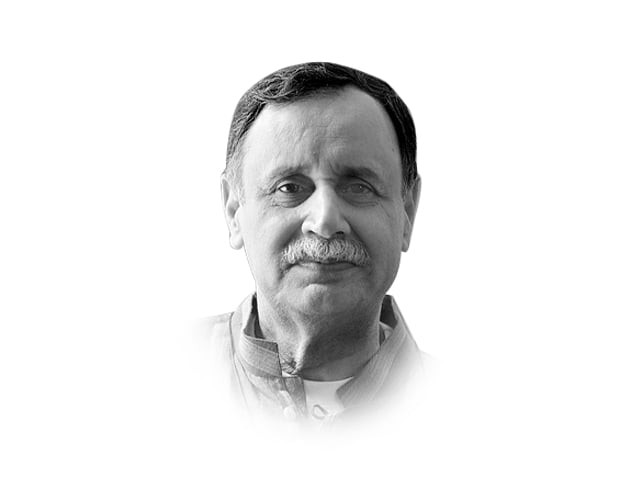A matter of ‘honour’
From Veena to Taseer, the preaching brigade is the first with (often misleading) interpretations of honour.

A matter of ‘honour’
The case of Raymond Davis is not an issue of national honour. It is an issue of law and must be dealt with accordingly. Statements from Pakistani leaders such as “the issue of killing two Pakistani citizens in Lahore in broad daylight by a US embassy employee has become a matter of national respect”, not just narrow but also camouflage the scope of what constitutes our national honour. Let us look at a number of situations to see how lopsided and superficial concepts of honour contribute to the voice of irrationality and intolerance in our society.
Of course, Raymond Davis was carrying an illegal weapon in his car. But is it not a fact that a large majority of our ruling elite, the powerful and the influential of this country, not just carry illegal weapons but also publicly display them in broad daylight? Why has this bigger issue never become a matter of our national honour? We all know that an American has killed two Pakistanis and he must be punished. But what happened to the Pakistanis who buried alive five women in Balochistan, who raped Mukhtaran Mai in front of her entire village or who burnt alive the Christians of the Gojra village? None of them have received punishments, while those who condoned these acts ended up becoming federal ministers. How come the state, the clergy and even the civil society was happy paying lip service and did not consider these issues a matter of national honour?
Visas, to some 500 Americans of the Raymond Davis category, were issued by the government of Pakistan, knowing full well that they will be engaged in shady activities. Are we not ourselves responsible for creating this problem? Where had our honour disappeared at that time? Will we not question the presence of these 500 agents or will we wait for a repeat of Raymond Davis and then invoke our sleepy national honour as an instrument of damage control?
From what Veena Malik wore in India to how Salmaan Taseer was killed in Islamabad, the preaching brigade will be the first to come out with (often misleading) interpretations of honour. Could one ask them as to what honour was at stake when they refused to say the final prayers for Salmaan Taseer, knowing that he had not committed blasphemy? Where had the national honour of Pakistan disappeared when the Imam of Mohabbat Khan Mosque in Peshawar announced a cash reward for killing Aasia Bibi, and the state decided to sheepishly look the other way?
The Higher Education Commission has confirmed that 57 lawmakers have made it to the parliament on the basis of fraudulent degrees. Another 298 refused to submit their degrees — presumably to avoid public humiliation. Was it honourable for the compromised Election Commission and the Higher Education Commission to sleep over this matter and let Pakistan be ruled by fraudulent parliamentarians? The message conveyed to the people of Pakistan is that Raymond Davis’s forging a wrong name for himself is a violation of our national honour. Three hundred parliamentarians doing the same to their degrees is not.
Our honour is not compromised when we accumulate a debt of $55 billion, which has largely facilitated an obscenely rich elite to become even richer, but failed to provide a pair of slippers or clean drinking water to the millions of impoverished. How can we not see any relationship between our obsessive begging, our continued dependency on foreign loans and the disdain with which we are viewed by other nations? How come this is not considered the number one item on our list of ‘national honour’?
How do we cope with our honour when we have 62 million Pakistanis who live below the poverty line, their women abused, their children deprived and their men awaiting a meaningful livelihood? Surely, there is something terribly wrong with our sense of honour when we remain oblivious to the presence of 8,000 ghost schools (in one province only) just because the children who go to these schools belong to a class that has no place in our already-preoccupied imagination.
It is non-productive, self-defeating and dangerous for modern nations to cling to feudal and fake concepts of ‘honour’. We need to come to some common understanding of where our honour lies. It lies in building a tolerant and peaceful society that provides a decent quality of life and equal economic opportunity to all citizens. It lies in creating a society that can push its ruling class towards greater accountability, ethical behaviour, austerity and better performance. It lies in protecting its women, children and minorities and providing easy, equal and efficient justice to all. On all these counts, we have failed miserably. So let us pause for a moment and rediscover and redefine what we mean when we say, ‘it is a matter of our honour’.
Published in The Express Tribune, February 19th, 2011.














COMMENTS
Comments are moderated and generally will be posted if they are on-topic and not abusive.
For more information, please see our Comments FAQ